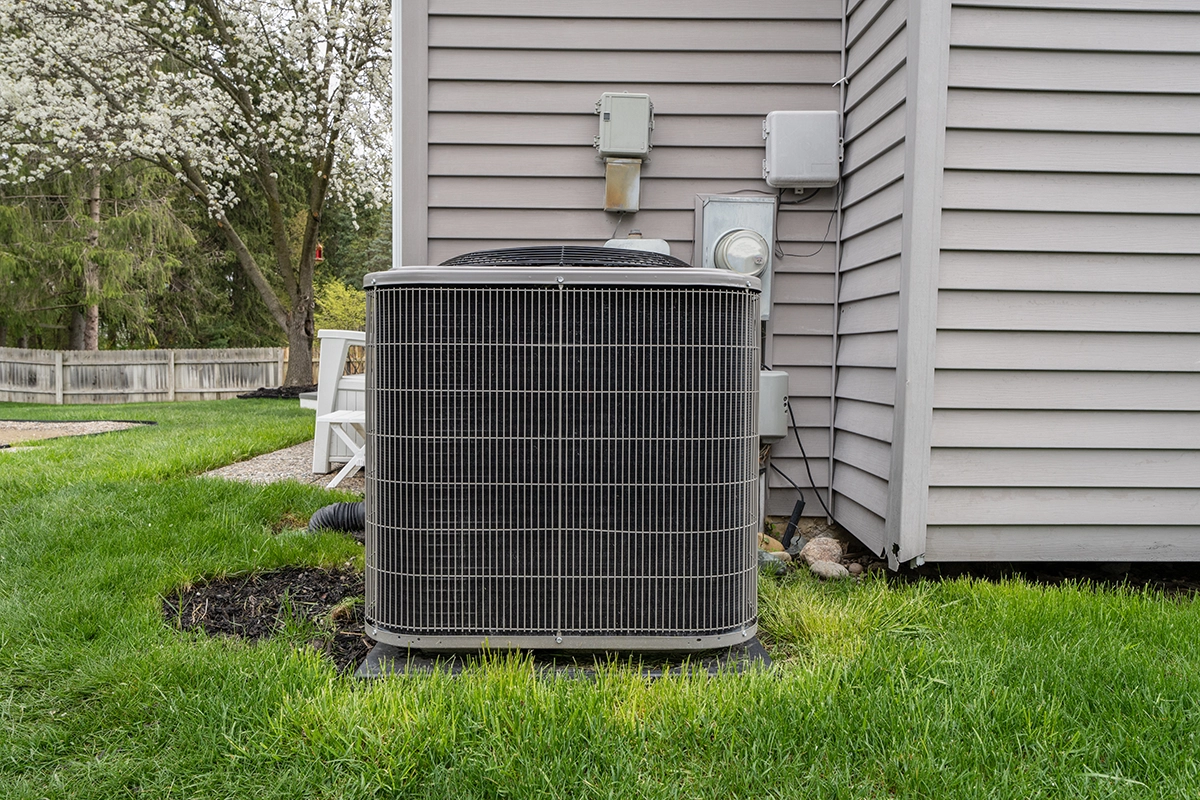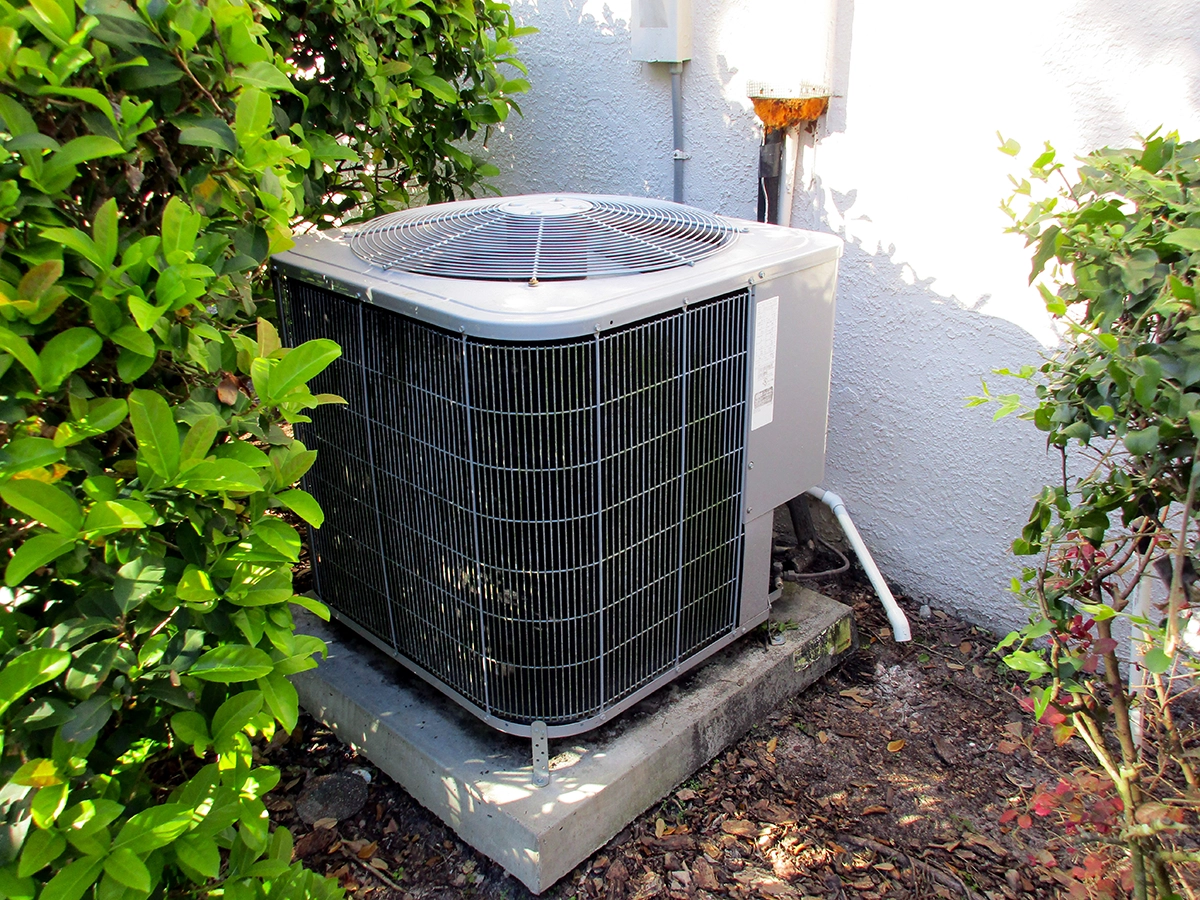by Taylor
Share
Share

Capacitors play a crucial role in heating and air conditioning systems. They help start and run motors efficiently. But does the voltage the rating matter? This is a common question among homeowners and HVAC technicians alike. The short answer is yes. Choosing the correct voltage rating is essential for performance and safety. In this blog, we will explore why the voltage rating is important, how it affects system performance, and what you should consider when replacing a capacitor. If you need professional assistance in Austin, TX, Solution Finders AC & Heating is here to help.
Why Does the Voltage Rating on a Capacitor Matter?
Capacitors store and release electrical energy. They provide the necessary power to start and keep HVAC motors running. The voltage rating on a capacitor indicates the maximum voltage it can handle safely. If a capacitor with a lower voltage rating is used, it may fail prematurely. Additionally, using a capacitor with an excessively high voltage rating can be inefficient. So, does the voltage rating on a capacitor matter? Absolutely, and here’s why.
The Role of Capacitors in HVAC Systems
In heating and air conditioning systems, capacitors are vital. They help compressors, blower motors, and fans operate correctly. There are two main types of capacitors in HVAC systems:
- Start capacitors – Provide extra torque to start motors.
- Run capacitors – Help motors run efficiently over time.
Both types must have the correct voltage rating. Using the wrong rating can lead to malfunctions or system damage. If you’re in Austin, TX, and unsure about the right capacitor for your HVAC system, Solution Finders AC & Heating can guide you in making the best choice.
Voltage Ratings and Electrical Load: Does the Voltage Rating on a Capacitor Matter
The voltage rating on a capacitor determines how much electrical load it can handle before breaking down. If the voltage rating is too low for a system, the capacitor may overheat and fail prematurely. A capacitor with a voltage rating that is too high, however, may not deliver the correct power balance to the motor. This can lead to inconsistent performance and increased wear on the system.
Effects of Using the Wrong Voltage Rating
Does the rating on a capacitor matter when selecting a replacement? Without a doubt. Using the wrong rating can cause significant issues. Here are some potential problems:
System Inefficiency and Performance Issues
When an HVAC system has a capacitor with an incorrect voltage rating, it may not function properly. A capacitor with too low a voltage rating may overheat and fail. On the other hand, a capacitor with too high a voltage rating may not provide the correct power balance. This imbalance can lead to system inefficiencies, resulting in higher energy costs.
Electrical Safety Risks
Does the rating on a capacitor matter for safety? Absolutely. Electrical components must be rated correctly to prevent short circuits and overheating. Using a capacitor with a voltage rating that is too low can cause electrical fires or damage to the HVAC system. Ensuring the correct voltage rating keeps your heating and air system operating safely.
Increased Wear and Tear on HVAC Components
A capacitor with the wrong voltage rating may force the compressor, blower motor, or fan to work harder than necessary. Over time, this additional strain can cause other HVAC components to wear out more quickly, leading to costly repairs and potential system failure.
Choosing the Right Capacitor for Your HVAC System
Selecting the right capacitor ensures optimal system performance. To make the best choice, consider the following factors:
Matching the Voltage Rating
The most critical factor when replacing a capacitor is matching the voltage rating. If your original capacitor has a rating of 370V, you must replace it with a capacitor rated for at least 370V. However, it is acceptable to use a higher voltage rating, such as 440V, if necessary.
Understanding Microfarads (µF)
In addition to voltage, capacitors have a microfarad rating. This rating measures the capacitance or energy storage capability. Always match the microfarad rating exactly. A mismatch can cause motors to overheat or not start at all.
Checking for HVAC Compatibility
Not all capacitors are universal. HVAC systems require specific capacitors that match the manufacturer’s specifications. Always check your system’s manual or consult a professional to ensure compatibility. If you need expert advice in Austin, TX, Solution Finders AC & Heating is here to assist.
Quality and Durability Considerations
Not all capacitors are built the same. High-quality capacitors last longer and perform better under stress. Choosing a capacitor from a reputable manufacturer ensures reliability and long-term efficiency.
Common Questions About Capacitor Voltage Ratings
Can I Use a Capacitor with a Higher Voltage Rating?
Yes, using a capacitor with a slightly higher voltage rating is safe. For example, if your system requires 370V, a 440V capacitor will work. However, using a lower voltage rating is not recommended, as it may lead to system failure.
How Often Should Capacitors Be Replaced?
Capacitors typically last 5-10 years. However, factors such as power surges and extreme temperatures can shorten their lifespan. If your HVAC system struggles to start, a failing capacitor could be the cause.
What Are the Signs of a Failing Capacitor?
- The system takes longer to start
- Unusual noises from the compressor or fan
- Higher energy bills due to inefficiency
- Visible bulging or leaking from the capacitor
If you notice any of these signs, consider replacing the capacitor immediately. Solution Finders AC & Heating in Austin, TX, can help diagnose and replace faulty capacitors to keep your system running smoothly.
How Do Temperature and Humidity Affect Capacitor Performance?
Capacitors are sensitive to temperature and humidity. Extreme heat can cause capacitors to degrade faster, while high humidity can lead to moisture buildup and potential failure. HVAC systems in areas with harsh weather conditions should have capacitors rated for those environments.
Final Thoughts
So, does the rating on a capacitor matter? Yes, it plays a crucial role in HVAC system performance and safety. Using the correct voltage rating ensures efficiency, prevents electrical hazards, and extends the lifespan of your system. If you need help selecting or replacing a capacitor, contact Solution Finders AC & Heating in Austin, TX. Our team of experts can ensure your HVAC system runs smoothly with the right components. Always prioritize safety and efficiency by using capacitors with the correct voltage rating.
Leave A Comment
Is your home feeling warm even though the air conditioner is running? If you’ve asked yourself, “why is my AC not blowing cold,” you’re not alone. At Solution Finders AC & Heating, we hear this question frequently from Austin homeowners—especially when the Texas heat starts cranking up. The good news? This issue is often caused […]
Your air conditioning system works hard to keep your home comfortable, especially during the scorching summers in Austin, TX. At the heart of that system is the AC compressor. Often referred to as the “engine” of your air conditioner, it’s responsible for pressurizing the refrigerant and pushing it through the coils to cool your home. […]
Choosing the right air conditioning system can make or break your home’s comfort—especially in a hot and humid place like Austin, Texas. One common option for smaller homes and apartments is the 2 ton AC unit. But how do you know if this is the best fit for your needs? At Solution Finders AC & […]
Have you noticed your air conditioner turning on and off more frequently than usual? If so, you might be dealing with AC short cycling, a common but serious HVAC issue that many homeowners in Austin, Texas, experience—especially during the long, hot summers. Not only does short cycling prevent your system from efficiently cooling your home, […]






